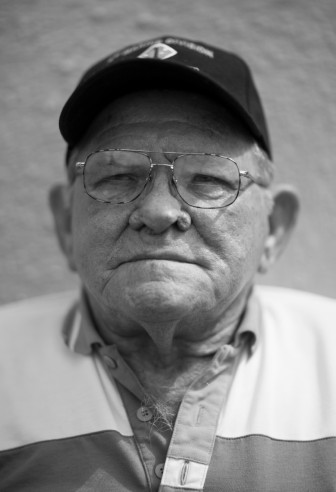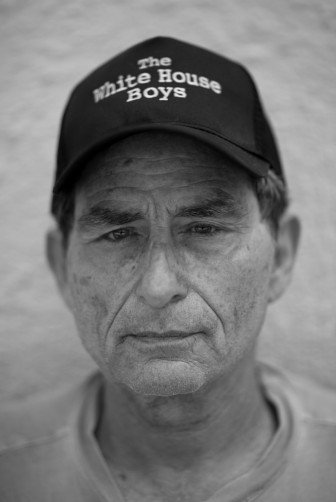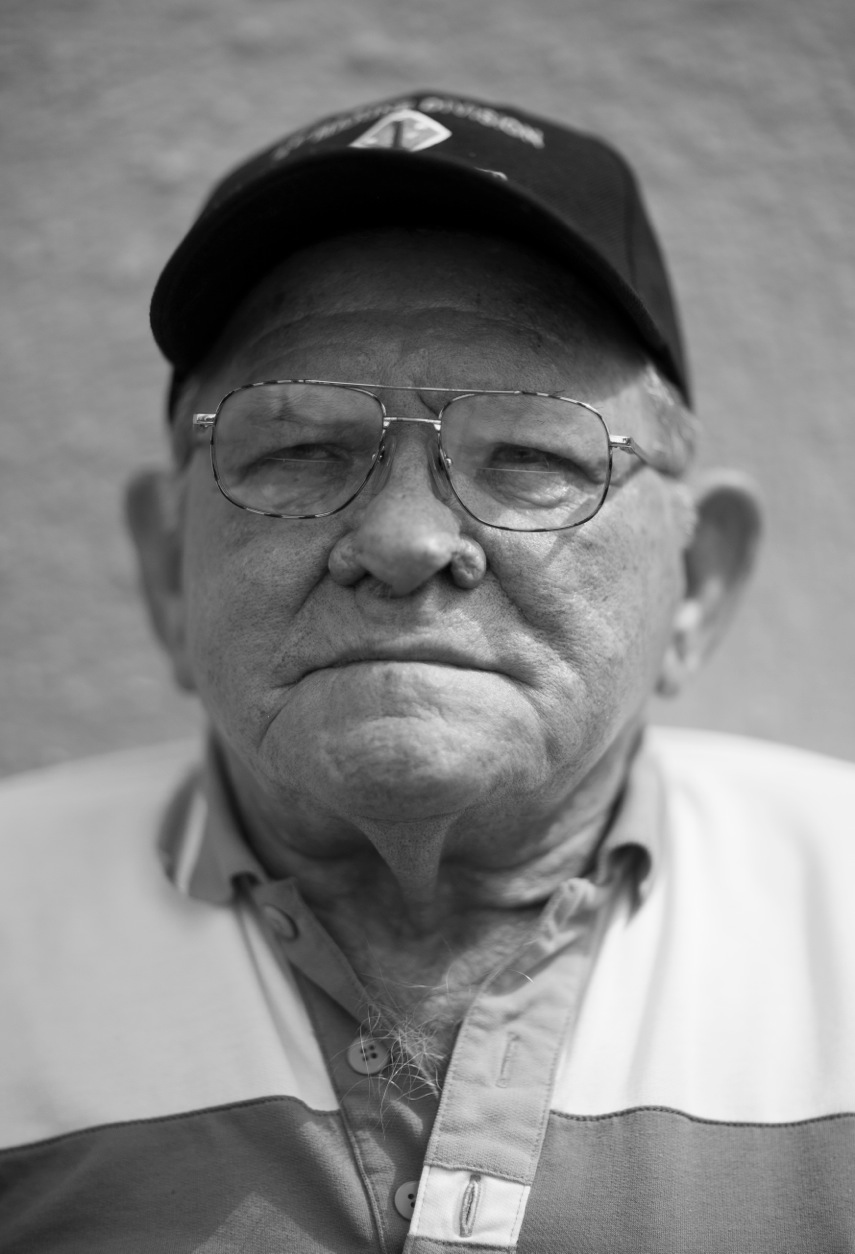The White House Boys speak out on abuses suffered at the hands of a Florida reform school.
>> Click here to read the main story "The Ghosts of the Past" by James Swift

Daniel LeClair / JJIE
Bob Baxter.
Bob Baxter was 15 when his mother asked a judge to send him to Marianna.
“I never saw a judge or nothing,” said the now 80-year-old Baxter. “I went to a courthouse and I sat in a chair outside. The deputy came and got me, and the next thing I know, I was in Marianna.” It was 1950.
After just three weeks at the facility, Baxter tried to escape. On the run for several days, he was apprehended by Marianna officials and taken to the infamous “White House,” where he was beaten with a wooden board. He made a second escape attempt, and received an even more terrible beating. “I woke up in the hospital,” Baxter said. “I never ran again.”
He joined the United States Marine Corps after leaving Marianna. His experiences at the reform school, he said, were worse than what he experienced in the Korean War.
“Nothing they could do to me in Korea,” he said, “matched Marianna.”
Joseph Johnson, 67, went to the Florida School for Boys’ Okeechobee campus at the age of 12. “The judge told me I was going down there to ride horses, play ball, go to school,” he said. “He didn’t know Okeechobee was the stepson of Marianna.”
At the facility, Johnson claimed to have been molested by staffers twice. The abuse he suffered in Okeechobee, he recalled, “messed me up really bad” and “gave me a lot of complexes.”
In the last few months before his release, Johnson slept in a broom closet. He had made a bed on the floor and used a nightlight on the wall to read passages from the Bible. He begged God to do anything to get him out of the facility.
For half a century, the only person he ever talked to about his experiences in Okeechobee was his wife. At the behest of a priest, he traveled back to the campus in 2000.
While the Marianna campus had “the White House,” the Okeechobee campus, Johnson said, had “the Library.” There, he said boys were often handcuffed to beds and brutally beaten.
During his visit, Johnson said his priest and his wife encountered a man that not only confirmed his stories of abuse, but actually showed them physical evidence.
“He opened up a desk drawer,” Johnson said, “and pulled out handcuffs, chains and the whips that they used on us.”
He described the leather straps used on children at the facility. “About five and a half, six inches wide, about two and a half feet long, with a big wooden handle on it,” he said. “When they beat you with that, you’re not going to walk or sit down for the next week.”
Other former Florida School for Boys residents have spoken of similar experiences:
Aaron Burns, 41, is one of the younger ex-White House Boys. He spent time at the Marianna campus from 1986 until 1989.
One day, he recalled getting hit in the head while watching television. He thought he had been struck by a mop by a fellow resident. However, when he awoke, his supervisors -- commonly referred to as “cottage parents” or “cottage fathers” by many White House Boys -- seemed less than concerned about his injury.
“I woke up,” he said, “and the cottage parents were still sitting at their desks, laughing.”
Growing up, Burns said, his stay at the facility filled him with confusion, anger and loneliness. “There’s a lot of dark secrets at that place,” he said. “If you made it after you got out of Marianna without going to prison, I’m surprised.”
James Denyke, 64, was sent to Marianna for being “incorrigible.” He arrived at the facility in 1964, at age 15. He went to the White House just once during his 18-month stay. “One time was enough for me,” he said. “I’d rather stick my head in the oven than go through that again.”
The smell of the room and the sound of the industrial fan, are scorched into his memory. “I hear that goddamn fan, because it was deafening,” he said. The worst part, he said, was having to listen to other children get beaten before him.
As an adult, he was given a three-year sentence for stealing a car. The vehicle, he said, belonged to one of his former cottage fathers at the Boys School. He drifted for several years afterwards, and developed a serious alcohol problem. Outside of sobering up, he said the greatest accomplishment of his life was receiving a full pardon from the governor of Florida. Today, he’s the sergeant-at-arms for the White House Boys; his motorcycle flies the official WHB colors.
He said he’s not looking for compensation from the state.
“An apology is what we’re looking for,” he said. “And them admitting wrongdoing for all of us who’ve suffered.”

Daniel LeClair
Doug Stover
Doug Stover was another resident at the Okeechobee campus. Now 63, he entered the facility in 1966, when he was 16 years old.
One day, another boy at the reform school attacked Stover. Later in the day, Stover cursed at him. Guards overheard Stover, and punished him by hitting him 35 times with a leather belt.
Cottage fathers at the campus, Stover said, periodically threw boxing gloves to residents and forced them to fight for their entertainment. The guards would make bets and laugh, he said.
After leaving the school, Stover did what many boys at the facility attempted to -- push the experiences to the recesses of his mind. Now in his 60s, he still feels traces of that boyhood fear.
He is unable to fully address his traumatic experiences at the facility, so financial compensation would do him little good, he said.
“I want the state of Florida to write me a personal apology, and I want it public,” he said. “I want them to hold themselves accountable for their action and inactions to the abuse of children.”

Jerry Cooper anytime brother 239 542 3831 we are hear for you with total understanding and support. We are only a phone call away. Hugs and love 🙂
Thank you for revealing my ordeal. Most if not all of my fellow residents were raised by disfunctional families. Many of us could have benefited from lessons of integrity and life lessons to improve our chances of a decent life. My legacy is a daughter who earned a masters degree of speech. Her children are stellar. The cycle of abuse has been altered for my family. I continue to struggle with low self esteem and suicidal ideation. Have been to treatment and Counciling. Life for me is a struggle.